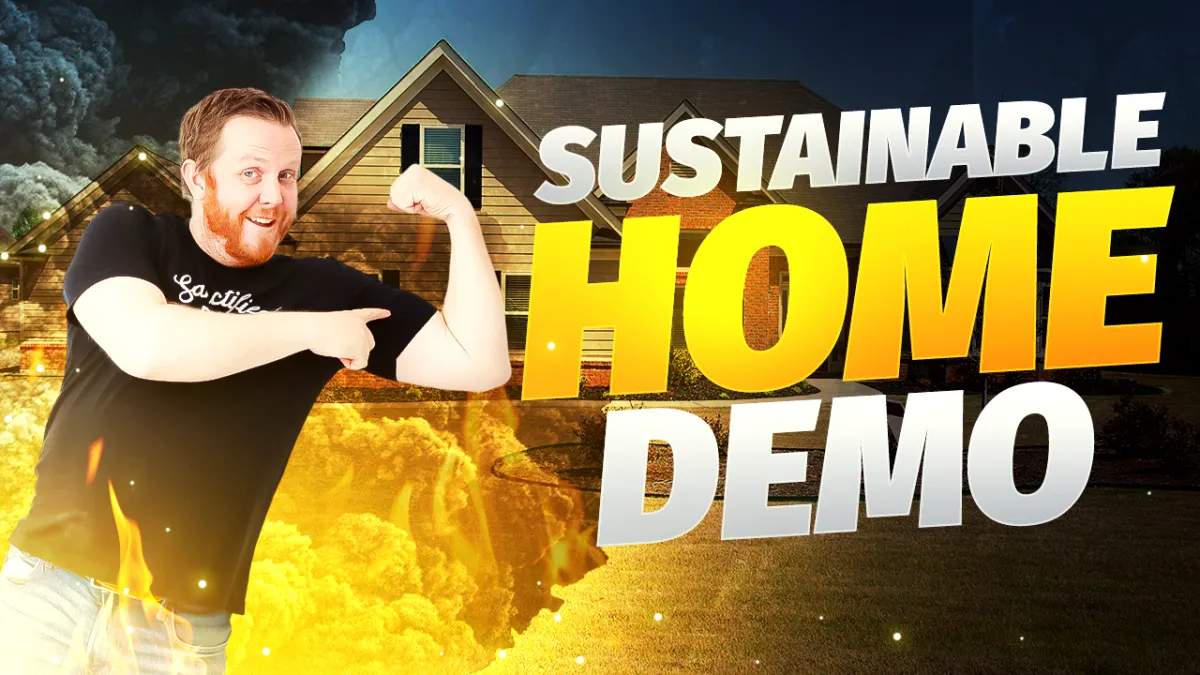
Demolition Done Right: Salvaging Valuable Materials from Old Homes
Hey, what's up everybody! It's TJ with Sanctified Homes and Construction, and we are gearing up to start a new demolition project next week. As we prepare to take down an old property, it's essential to remember that demolition isn't just about tearing a structure down; it's about being good stewards of the materials within. This means finding ways to salvage and repurpose valuable materials, reducing waste, and preserving the history embedded in the home. Here’s how you can approach demolition thoughtfully and sustainably.
Why Salvage Materials?
1. Environmental Impact
Demolition can produce a significant amount of waste, much of which ends up in landfills. By salvaging materials, you can reduce this waste and minimize your environmental footprint.
2. Preserving History
Older homes often contain unique, high-quality materials that aren't available today. Salvaging these materials allows you to preserve a piece of history and incorporate it into new projects.
3. Cost Savings
Repurposing salvaged materials can save money. Items like windows, doors, and lumber can be reused or sold, reducing the cost of new materials.
Key Materials to Salvage
1. Windows
Old windows, especially those from historic homes, can be repurposed or sold to restoration enthusiasts or taken to a Habitat ReStore. They often have unique designs and high-quality glass that can be valuable for new projects.
2. Doors and Hardware
Solid wood doors, antique doorknobs, and other hardware are highly sought after. These items add character to new builds or remodels and can often be sold at a premium.
3. Lumber
Old homes frequently contain high-quality lumber, including beams, flooring, and molding. This wood can be repurposed for new construction projects, used in furniture making, or sold to craftspeople.
4. Bricks and Stones
Bricks and stones from old homes can be cleaned and reused for new masonry projects. They add a rustic, timeless feel to new builds and landscaping projects.
5. Fixtures and Appliances
Light fixtures, sinks, and other appliances from older homes can be cleaned, refurbished, and reused. These items often have a unique style that can’t be found in modern fixtures.
Tips for Salvaging Materials
1. Plan Ahead
Before you start demolition, list items you want to salvage. Planning ensures you don’t overlook valuable materials during the teardown process.
2. Careful Removal
Take the time to carefully remove items to avoid damage. For example, prying up floorboards gently can prevent splintering, and unscrewing fixtures rather than breaking them off preserves their integrity.
3. Organize and Store
Once items are removed, organize and store them properly to prevent damage. Labeling and categorizing salvaged materials can make it easier to sell or repurpose them later.
4. Reach Out to Reclamation Services
If you don’t have the time or resources to salvage materials yourself, consider partnering with a reclamation service. These companies specialize in salvaging and can often handle the entire process for you.
Conclusion
Salvaging materials from old homes is not only environmentally responsible but also economically savvy and historically significant. By taking the time to carefully remove and repurpose valuable items, you can reduce waste, save money, and preserve unique pieces of history. Next time you're faced with a demolition project, remember to approach it with a mindset of sustainability and stewardship.
For more tips and advice on home building and demolition, check out our Sanctified Homes page. If you have any questions or need further guidance, feel free to reach out.
In the meantime, don't forget to raise your standard. We'll talk to you guys soon!

Home Building Checklist
We understand that the process of building comes with a lot of decision-making. So we created the Home Building Checklist to guide your decision-making process, and it's yours for free here!

The Blessed to Build Foundation is a 501(c)3 Non Profit providing education & resources to help homeowners and home builders make informed choices about building homes that last.
Dane County, Wisconsin
Hire a Builder
If you are looking to build a new home in the following cities, connect with Sanctified Homes & Construction to start the conversation.
Copyright Blessed to Build Foundation, Inc. 501(c)3

